

The Catholic Patriotic Minute #12: Saint Junípero Serra
Catholics For Catholics Special Edition | September 22nd, 2025
Saint Junípero Serra: The Founding Father of California
Canonized on September 23, 2015, Saint Junípero Serra lived out the Catholic Church’s mission of evangelizing the world by founding missions in California in the late 1700’s. Today, people disrespect Saint Junípero’s life by labeling him a “brutal colonist”. In the chaos of 2020, some even pulled down statues of Saint Junípero Serra in the name of social justice. Little did they know of his life spent converting the Native Americans, providing them with a home at the missions, and even defending the human rights that the Spanish Empire itself was supposed to grant them under the governance of the Viceroyalty of New Spain (Mexico).
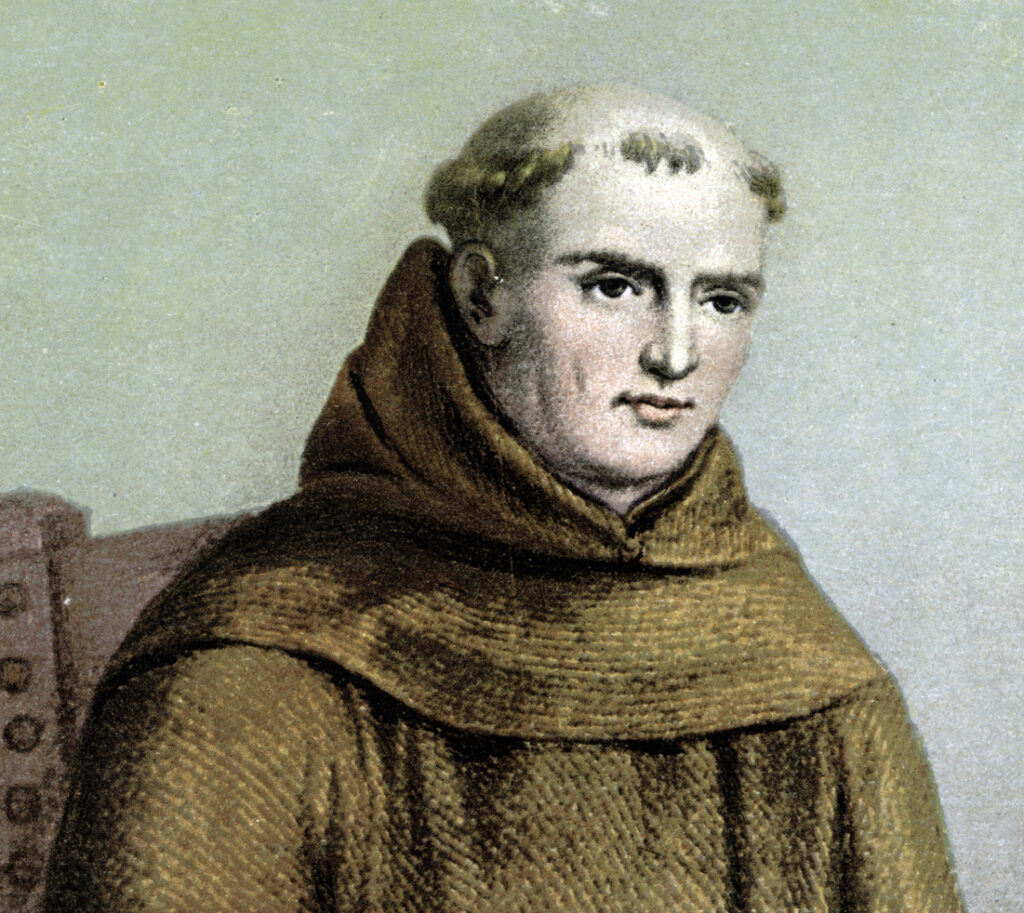
On November 24, 1713, Serra was born in the town of Petra on the Balearic Island of Mallorca in Spain. On the same day, he was baptized at Saint Peter’s Church, and his parents chose the name Miguel José. Serra attended a school run by Franciscans until the age of fifteen, when his parents sent him to the town of Palma to help serve a cathedral and help in philosophy classes taught at the Francican monastery of San Francisco.
On September 14, 1730, at the age of sixteen, Serra joined the Convento de Jesús as a novice. When he made his profession a year later, Serra chose the name Junípero with Saint Francis’s companion, Brother Juniper, in mind. Brother Juniper was known for his humility, joy, simplicity, and joy. Although unknown, the date of Serra’s ordination most likely took place during the Ember Days in December of 1738. By 1742, Serra earned his doctorate in theology.
Serra abandoned his life as a theology and philosophy professor to become a missionary in the New World in the year 1749, at the age of thirty-five. He left for his voyage across the ocean blue on April 13, 1749, and arrived at Vera Cruz, New Spain (Mexico), on December 7 of the same year. Even though he could travel by horse, Serra chose to walk two hundred and fifty miles from Vera Cruz to Tenochtitlan (Mexico City). Serra and his fellow friars made it to the Francsican College of San Fernando by January 1 of the next year.
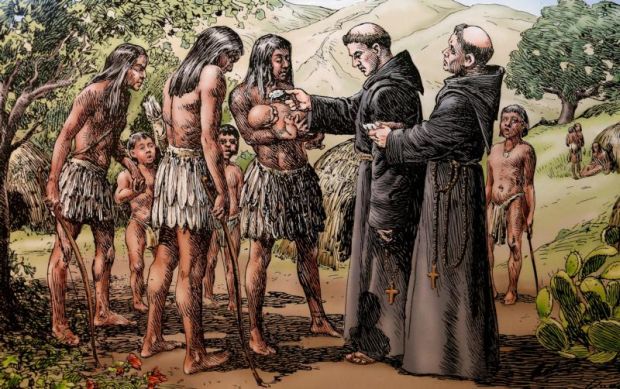
From 1750 to 1758, Serra served as a volunteer for the Sierra Gorda missions with the Pame Indians. His missionary work involved the construction of a church, evangelization, and teaching the Indians religion, which required Serra to become proficient in the Otomí Language. Serra also advocated for the Indian rights to the valley of Tancama against colonizers. In 1758, Serra was sent to the college of San Fernando, where he served as college counselor until 1761 and then as master of novices until 1764, all while preaching at nearby missions. Then, Serra was selected as the president of the ex-Jesuit missions in Baja California in 1767.
Yet, the following year Serra offered to join the missions in Upper California (Alta California), which is where his most well-known work was completed. On the way to San Diego, he established his first mission in San Fernando de Velicatá on May 14, 1769. Once he arrived at San Diego, Serra founded California’s first mission. For the next thirteen years, Serra founded eight other missions in Upper California: San Carlos, Monterey-Carmel, San Antonio, San Gabriel, San Luis Obispo, San Francisco, San Juan Capistrano, Santa Clara, and San Buenaventura. By the year 1784, 6,736 natives were baptized at these first nine missions, and 4,646 Christian natives lived at these missions.
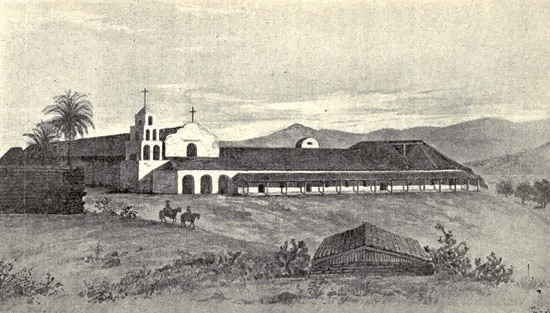
During the second half of his life, specifically in his time of travel in New Spain (Mexico) and California, Serra suffered swelling and itching legs, which had mosquito bites that turned into ulcers. Sometimes, he could not walk, and others had to carry him on a stretcher if he was travelling. He started suffering from asthma in 1758. Despite his physical suffering, Serra remained actively present, leading the efforts in founding missions, converting natives to Catholicism, and protecting the rights of the natives.
When the English colonists started defending their rights in the colonies, Junípero Serra was defending the rights of the Native Americans. With the permission of Pedro Fages, who was the governor of the presidio of Monterey, soldiers were mistreating the natives and abusing the native women. In 1773, Serra travelled from Carmel to Tenochtitlan (Mexico City) to address the government of New Spain with his concerns, despite almost dying twice on the journey. He defended the Native Americans with his Representación, which was a bill of rights for the natives that would result in the proper treatment of the natives. Most of the articles of Representación were decided in Serra’s favor and were implemented.
Serra lived out his last days at Mission San Carlos until August 28, 1784, the day of his death. The cause for Serra’s canonization was opened in 1934. Saint Pope John Paul II beatified Blessed Junípero Serra on September 25, 1988. During an address at the Mission of San Carlos in Carmel, the Holy Father called Serra the “Apostle of California” and the “defender and champion” of the Native Americans.
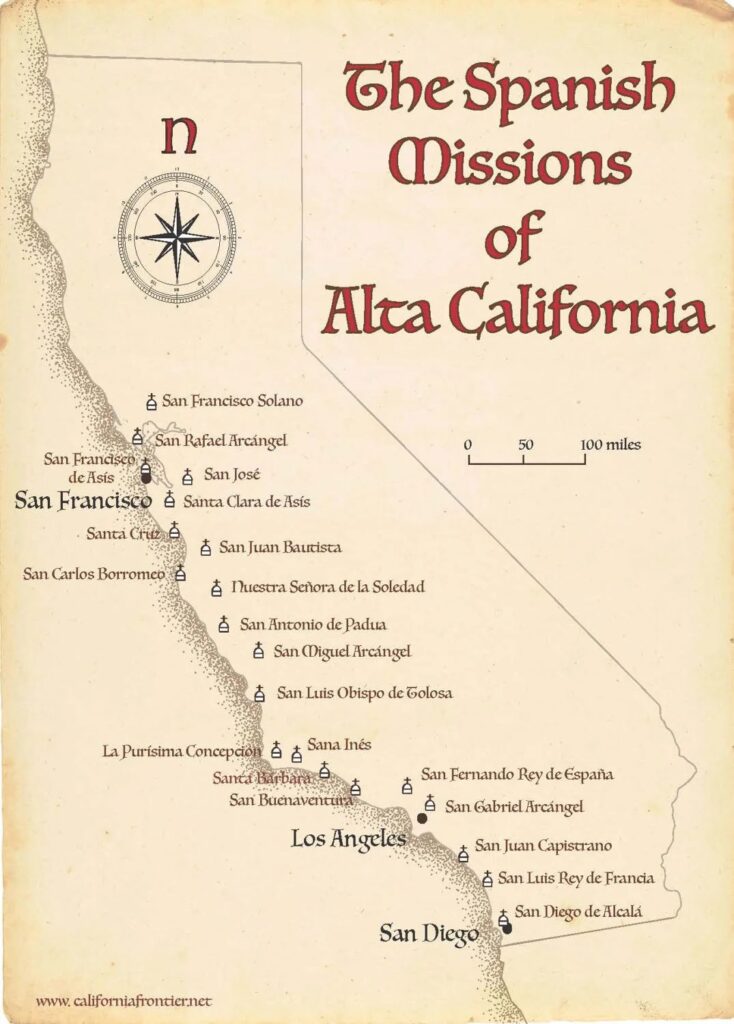
Saint John Paul II explained that the Church’s call to evangelization is what drove Serra to travel on foot throughout New Spain far from home, for the latter half of his life. He said, “Father Serra and his fellow missionaries shared the conviction found everywhere in the New Testament that the Gospel is a matter of life and salvation. They believed that in offering to people Jesus Christ, they were doing something of immense value, importance and dignity.”
On September 23, 2015, Pope Francis canonized Saint Junípero Serra in Washington D.C. at the National Shrine of the Immaculate Conception. The Pope described Saint Junípero as “the embodiment of ‘a Church which goes forth’, a Church which sets out to bring everywhere the reconciling tenderness of God.” Pope Francis said, “[Junípero] learned how to bring to birth and nurture God’s life in the faces of everyone he met; he made them his brothers and sisters. Junípero sought to defend the dignity of the native community, to protect it from those who had mistreated and abused it.”
Pope Francis also emphasized the importance of Junípero’s motto, “siempre adelante! Keep moving forward!”. Serra’s constant move forward, toward evangelization, not only helped the Native Americans encounter Christ, but it also helped Serra himself encounter Christ. The Holy Father further explained, “For [Serra], this was the way to continue experiencing the joy of the Gospel, to keep his heart from growing numb, from being anesthetized. He kept moving forward, because the Lord was waiting. He kept going, because his brothers and sisters were waiting. He kept going forward to the end of his life.”
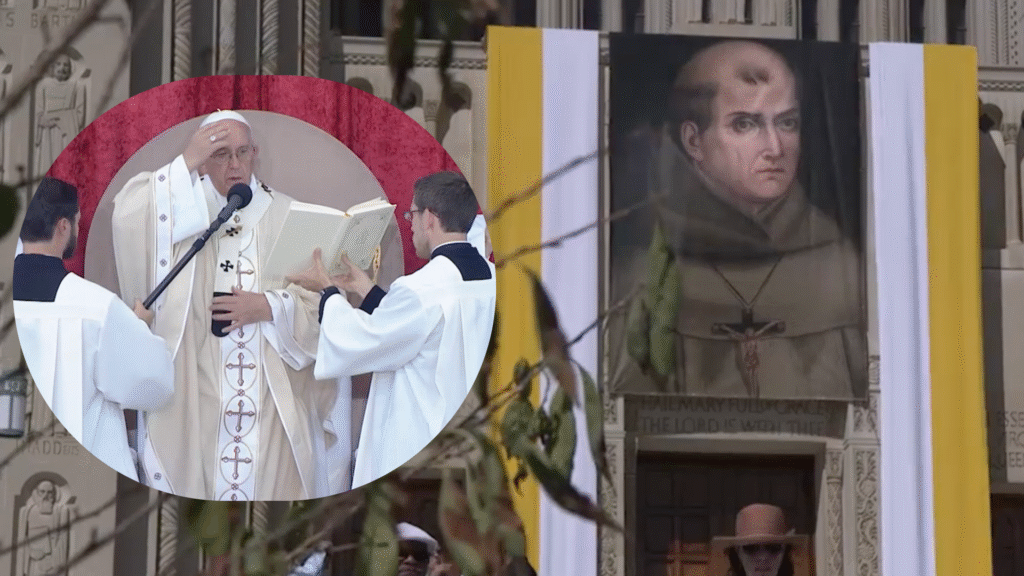
May we pray for the intercession of Saint Junípero Serra that, in this time in the United States where violence and anger seem so prevalent in recent days, when our nation seems so wounded, that we may keep our own hearts from “growing numb” by fostering the charity and joy of Christ that Saint Junípero Serra imitated so well.
For more Catholic Patriotic Minutes, visit CATHOLICUSA.COM
Save and Share This Catholic Patriotic Minute!
